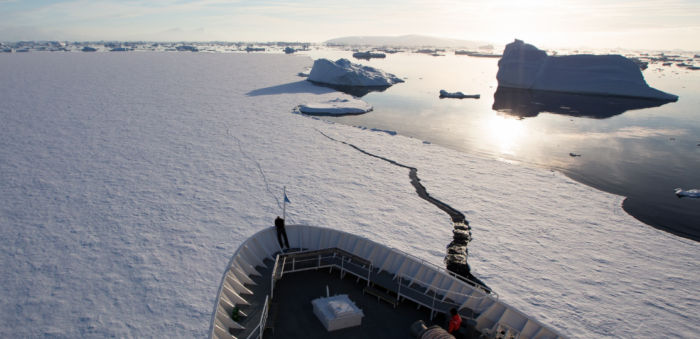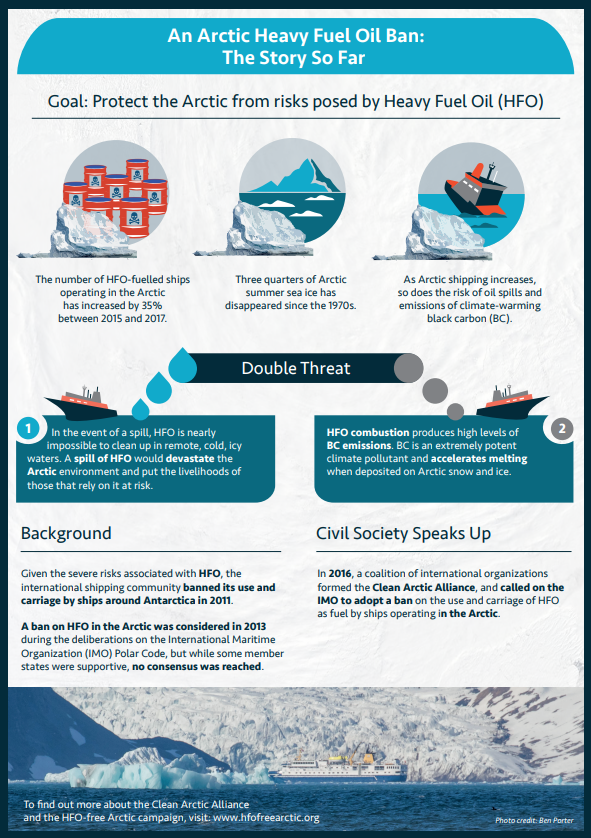As the meeting of IMO’s Sub-Committee on Pollution Prevention and Response (PPR 6) opens today in London, the Clean Arctic Alliance called on Member States to give emphasis to the target of establishing a ban on the use and carriage of heavy fuel oil by shipping in the Arctic.
Specifically, Dr Sian Prior, Lead Advisor to the Clean Arctic Alliance, mentioned that IMO member states must be focused on banning HFO in the Arctic, ‘especially in light of recent revelations from the IPCC on the urgent need to limiting the effects of climate change on the Arctic region’.
The Arctic is warming faster than anywhere else on earth – and as sea ice recedes, any increased HFO-fueled shipping in the region will exacerbate the climate crisis, through the deposits of black carbon caused by the burning of HFO, onto sea ice and ice caps. By banning both the use and carriage of HFO as fuel from ships operating in Arctic waters, the risks of a catastrophic oil spill can also be avoided
During October’s MEPC 73, support for the work to mitigate the risks of HFO in the Arctic – including developing a ban – was voiced by Austria, Bangladesh, Canada, Denmark, Finland, France, Germany, Iceland, Ireland, Netherlands, New Zealand, Norway, Spain, Poland, the US and the UK.
[smlsubform prepend=”GET THE SAFETY4SEA IN YOUR INBOX!” showname=false emailtxt=”” emailholder=”Enter your email address” showsubmit=true submittxt=”Submit” jsthanks=false thankyou=”Thank you for subscribing to our mailing list”]
Then, IMO member states considered impact assessment methodology, before concluding to send the ‘Scope of Work’ to reduce the risks associated with HFO in Arctic waters, to PPR 6 meeting.
However, the work on impact assessment methodology was not completed, and the Clean Arctic Alliance hopes that finalising guidance on impact assessment methodology will not delay the development of the ban on the use and carriage of HFO.
A ban on HFO in the Arctic was considered in 2013 during the deliberations on the IMO Polar Code. However, while some member states were supportive, no consensus was reached.
In April 2018, an agreement was reached to develop a ban, and now in 2019, the Arctic HFO ban is on its way. Specifically, during 2019 a technical elaboration of measures will take place in PPR 6 and MEPC 74, to move the Arctic HFO ban one step closer to reality.
The actual adoption of the ban is expected to take place on 2021, with the industry making its decision on what fuels it will use during 2022.
At last, the ban will apply in 2023.
See the whole process of the HFO ban in Arctic, in the following infographic




























































